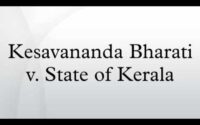French Censorship and its Global Impact
This article has been written by Dakshita Sharma Katare & Curated by Naman Jain of Bennett University, Greater Noida.
Imagine that one gets up in the morning being told that if he clicks a policeman’s photograph, he will be jailed! This might sound horrifying, but it is the truth.
The French Parliament has proposed a new law, Loi relative à la sécurité globale (law on global security) that includes security legislation covering issues regarding policing in France. This bill is being criticized globally with Article 24 attracting most criticism.
The clause 24 of the bill would criminalize the publishing of any photos or videos of the police officers or gendarme that recognizes them, there being an intent to harm their “physical or psychological integrity,” if brought into action.
Article 24 bans “disseminating, by any means or medium whatsoever, with the aim of harming their physical or mental integrity, the image of the face or any other identifying element of an officer of the national police or member of the national gendarmerie when acting during a police operation.” Also, anyone who will be found violating this law will be entitled to one-year imprisonment along with a fine of €45,000. This bill was later amended to include a precision that the intent to harm must be “manifest” and the law should not interfere with freedom of press.
Though this last-added clause seems relieving but, it actually is not. It is quite broad, and perspective based. This is because a journalist might be detained as his act of covering some news may seem to provide the policemen a negative vibe and this act of his may appear to be an act of ill-intent to them. This would increase the power of the policemen manifolds and may create unrest in the nation. Also, one may see that even if the journalist is released or acquitted later by the courts of justice, the biggest damage suffered by him could never be compensated. Here, the damage will not be the loss of time; instead, it will be the loss of an important piece of news that can never be recovered.
It is important to note that a similar bill proposed in the spring session of French Parliament has already failed once. The element that makes this bill distinct from the previous one is that it has the support of the Interior Minister Gérald Darmanin, who told BFMTV, “My job as interior minister is to protect those who protect us. I had made a promise, that it would no longer be possible to broadcast the image of the police and gendarmes on social media. That promise will be kept.” This has made the situation difficult for all becoming the cause of worry to many citizens, activists, and organizations. The stance of the Interior Minister clearly shows the fate of this bill in the Parliament. Nevertheless, this bill will not turn into a law unless both the French Parliament Assemblée Nationale and the Senate pass it, unanimously.
International organizations like Reporters without Borders (RSF), Amnesty International, the United Nations, and French Human Rights Defenders, fear that this bill if adopted, will strangulate the freedom of press.
Many human rights organizations argue that such restrictions will not just hamper the freedom of press but will also become a threat for the citizens. This bill is open to interpretation and it might cause issues for non-journalist citizens too. This can be seen as one creating a negative apprehension of a person standing in front of a policeman with his camera ‘on’.
Though this bill does not ban shooting and filming of police officials altogether, its ‘intent’ clause is indefinite, and its ambiguity can become a serious threat to a person’s right to life and personal liberty.
Globally, it can impact the lives of all those who visit France for tours as their one photograph or video might turn on the politics and be considered as a crime. Also, this restrains the French journalists’ right to free practice of occupation and the right to free press of journalists worldwide. It also poses a huge question on the severity of censorship as good censorship has always been promoted.
This bill is being considered controversial and is highly debated worldwide. If this bill got passed, it will not just cause a huge suffering to human rights, but also will give the other nations’ government the liberty to bring and enact similar laws restricting personal rights. Thus, this bill should not be passed on international level as it will promote censorship, proving to be a big blot on human rights.
It is very crucial to protect the rights of the policemen after the yellow vest spring riots in France, but not at the cost of the rights of the journalists or citizens of the country.
This bill aimed at increasing the security of the citizens might ironically make them vulnerable to security threats, if passed.


